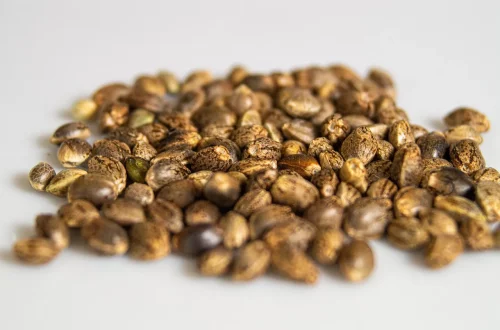
Exploring the Depths of Her Pleasure: A Journey to Self-Discovery
Exploring the depths of pleasure is a journey that transcends mere physical experiences; it is a profound exploration of oneself, encompassing emotional and psychological dimensions. In a world that often emphasizes external validation and societal expectations, the importance of self-discovery and understanding one’s own desires cannot be overstated. This journey invites us to peel back the layers of our identities, unearthing the core of what brings us joy and satisfaction.
Pleasure is not just a fleeting sensation; it is an intricate tapestry woven from our experiences, emotions, and beliefs. Each individual’s relationship with pleasure is unique, influenced by cultural backgrounds, personal experiences, and even past traumas. Engaging with pleasure can be an act of rebellion against societal norms that often suppress our desires. It encourages us to embrace our bodies and minds fully, allowing us to reclaim our narratives and affirm our existence.
Understanding pleasure also requires a willingness to confront discomfort. It challenges us to recognize the barriers we may have erected around our desires, whether they stem from fear, shame, or societal conditioning. This exploration is not merely about physical gratification; it is about cultivating a deeper connection with ourselves and fostering a sense of empowerment. As we embark on this journey, we begin to understand that pleasure is not a destination but a continuous process of self-exploration and acceptance.
The Body as a Canvas of Experience
Our bodies serve as canvases on which the experiences of pleasure are painted. Each sensation we feel can evoke a myriad of emotions, memories, and thoughts. To fully engage with our pleasure, we must first learn to listen to our bodies. This involves tuning into the subtle signals they send us, whether it’s a flutter of excitement or a lingering tension. By becoming more aware of our physical sensations, we can better understand what brings us joy and satisfaction.
Mindfulness plays a crucial role in this process. When we practice being present in our bodies, we can explore our sensations without judgment. This means allowing ourselves to feel pleasure in its many forms—whether through touch, movement, or even stillness. Engaging in mindfulness exercises, such as deep breathing or body scans, can help us connect with our physical selves more authentically.
Moreover, exploring different forms of touch can expand our understanding of pleasure. This might include self-massage, experimenting with various textures, or even engaging in dance. Each experience offers a new perspective on what it means to feel good in our bodies. The key is to approach these explorations with curiosity rather than expectation, allowing ourselves to discover what resonates with us personally.
Additionally, societal perceptions of the body often influence how we experience pleasure. Many people struggle with body image issues, which can create barriers to enjoying physical sensations. It’s important to challenge these societal norms and embrace our bodies in their entirety. This might involve practicing body positivity and self-acceptance, recognizing that every body is deserving of pleasure and joy.
By viewing our bodies as instruments of experience rather than objects to be critiqued, we can open ourselves to a richer, more fulfilling journey of self-discovery. The exploration of pleasure thus becomes not just a physical endeavor but a holistic one, encompassing emotional and psychological aspects that contribute to our overall well-being.
Emotional Connections and Pleasure
Pleasure is deeply intertwined with our emotions and mental states. It is essential to recognize that our emotional well-being significantly impacts our ability to experience joy. When we are burdened by stress, anxiety, or unresolved trauma, it can create barriers to experiencing pleasure fully. Therefore, emotional healing becomes a vital component in the journey toward self-discovery.
Understanding our emotional landscape is key to unlocking new dimensions of pleasure. This might involve reflecting on past experiences, identifying patterns in our emotional responses, and recognizing how they influence our desires. Engaging in practices such as journaling or therapy can facilitate this self-reflection, allowing us to explore our emotions in a safe and supportive environment.
Moreover, building healthy emotional connections with others can enhance our experiences of pleasure. Intimacy, whether physical or emotional, provides a space for vulnerability and trust. When we feel safe and accepted by those around us, we are more likely to explore our desires without fear of judgment. This can lead to deeper connections, enriching both our emotional and physical experiences of pleasure.
The role of communication cannot be understated in this context. Expressing our desires, boundaries, and emotional needs to partners fosters a deeper understanding and connection. It allows for a collaborative exploration of pleasure that honors both individuals’ experiences. Open dialogue can break down barriers and cultivate a sense of intimacy that enhances the pleasure derived from shared experiences.
Ultimately, emotional healing and connection are essential in enriching our understanding of pleasure. By addressing our emotional needs and fostering genuine connections with ourselves and others, we create a fertile ground for exploration and growth. This journey reinforces the notion that pleasure is not a solitary pursuit but a shared experience that can enhance our relationships and overall well-being.
Redefining Pleasure Beyond the Physical
While physical pleasure often takes center stage in discussions about enjoyment, it is crucial to recognize that pleasure extends far beyond the physical realm. Intellectual, creative, and spiritual pleasures offer unique avenues for self-exploration and fulfillment. Engaging with these dimensions can help us cultivate a more holistic understanding of what brings us joy.
Intellectual pleasure, for instance, can be derived from engaging with art, literature, or stimulating conversations. These experiences challenge our minds and inspire new ways of thinking, fostering a sense of fulfillment that transcends the physical. By seeking out intellectual stimulation, we can uncover new passions and interests that contribute to our overall sense of well-being.
Similarly, creative expression serves as a powerful vehicle for exploring pleasure. Whether through painting, writing, or music, engaging in creative activities allows us to channel our emotions and experiences into tangible forms. This not only fosters a sense of accomplishment but also provides an outlet for self-discovery. The act of creating can be immensely pleasurable in itself, offering a sense of freedom and exploration.
Spiritual pleasure, too, should not be overlooked. Many individuals find joy in practices that connect them to something greater than themselves, whether through meditation, nature, or community involvement. These experiences can bring a profound sense of peace and fulfillment, emphasizing the importance of nurturing our spiritual selves as part of our journey toward self-discovery.
In redefining pleasure, we acknowledge that it exists in various forms and is not limited to physical sensations. By exploring these diverse dimensions, we can cultivate a richer, more fulfilling relationship with ourselves and the world around us. This holistic approach to pleasure encourages us to embrace our multifaceted identities and to recognize the myriad ways in which we can experience joy.
In conclusion, the journey of self-discovery through pleasure is a deeply personal and transformative experience. By exploring our bodies, emotions, and the various dimensions of pleasure, we can cultivate a greater understanding of ourselves and our desires. This exploration not only empowers us but also enriches our connections with others and the world around us.
**Disclaimer:** This article is for informational purposes only and should not be considered medical advice. If you have health concerns, please consult a qualified healthcare professional.




